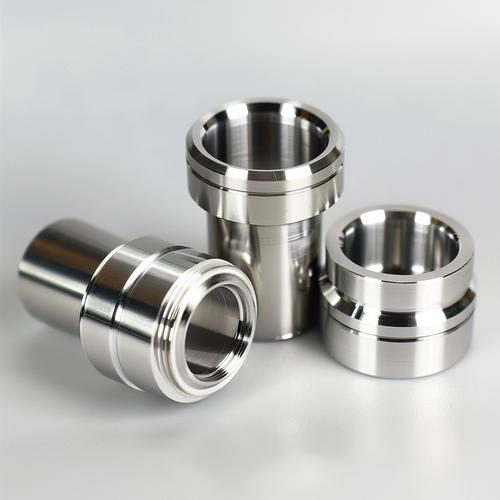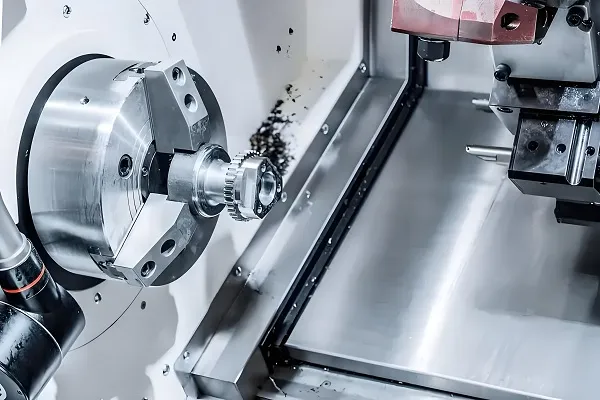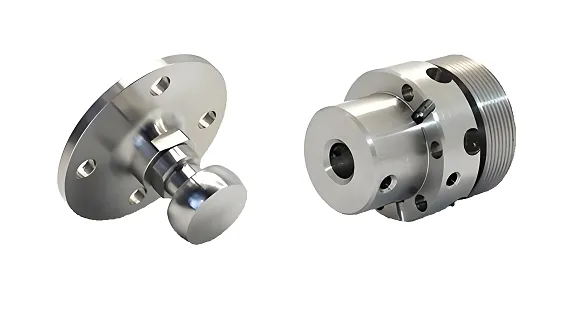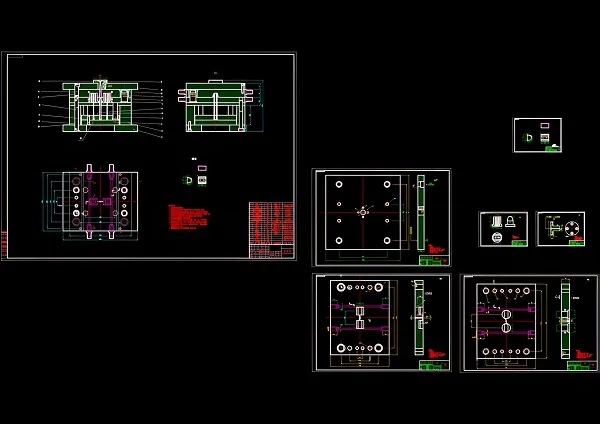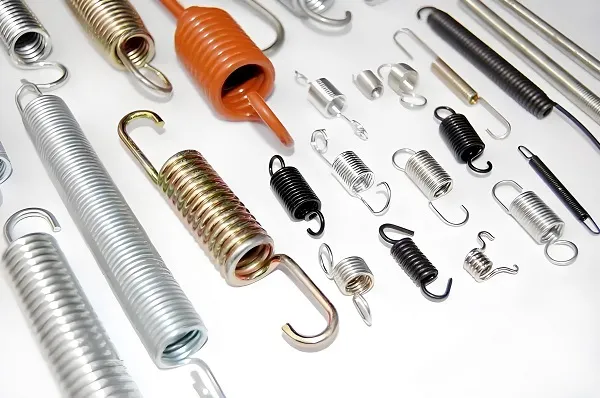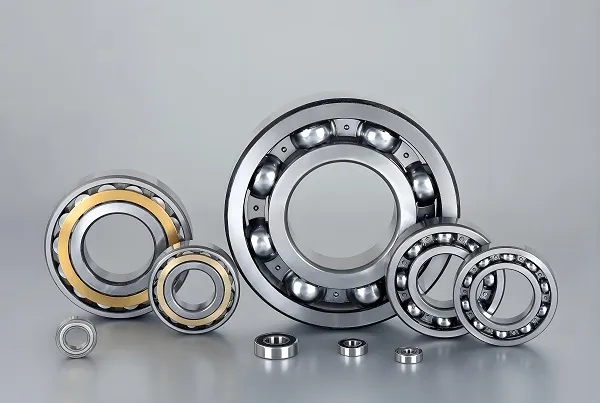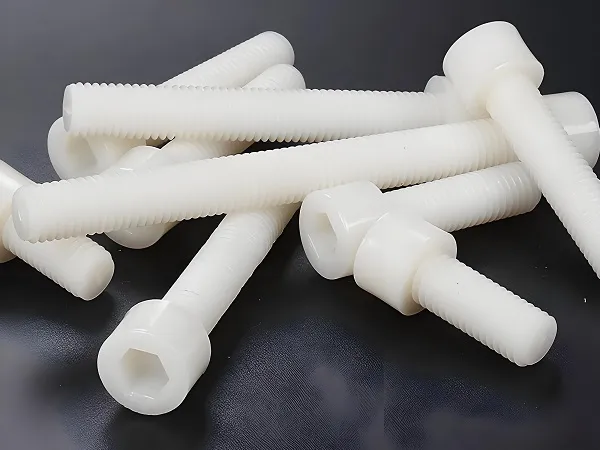Custom CNC steel alloy parts are precision components made via CNC technology, tailored to specific designs. Crafted from sturdy steel alloys, they boast high strength, durability, and accuracy, crucial in industries needing top performance and reliability, fitting unique needs for optimal use.
Why Choose Custom CNC Steel Alloy Parts
- Perfect Fit: Tailored to exact design specs, eliminating the need for compromises or costly adjustments that come with off-the-shelf parts.
- Consistent Quality: High precision of CNC machining ensures uniformity across batches, reducing assembly issues and boosting product reliability.
- Superior Material Properties: Steel alloys offer excellent strength, wear, and corrosion resistance, enhancing part longevity for demanding environments.
- Optimized Performance: Customization allows geometry optimization, improving efficiency, reducing weight, and better integrating with larger systems.
CNC Steel Alloy Parts Machining Technologies
- Milling: Uses rotating cutting tools to remove material, creating intricate shapes, slots, and surfaces with high precision.
- Turning: Rotates the part against a stationary tool, ideal for cylindrical, conical, or spherical components like shafts and bushings.
- Electrical Discharge Machining (EDM): Uses electrical sparks to erode material, suitable for hard alloys and intricate details with micron-level accuracy.
- Grinding: Refines surfaces to achieve tight tolerances and smooth finishes, essential for low-friction parts.
- Multi-axis Machining: Up to 5 axes enable simultaneous cutting from multiple angles, reducing setup time and allowing complex geometries.
- CAD/CAM Integration: Translates 3D designs into machining instructions seamlessly, optimizing cutting parameters.
CNC Steel Alloy Parts Machining Process
- Design and Engineering: Create CAD models and conduct manufacturability analysis (DFM) to spot potential issues early.
- Material Preparation: Cut chosen steel alloy to rough dimensions, removing excess material to save machining time.
- Programming: Use CAM software to generate toolpaths and machine instructions based on CAD models, optimizing parameters.
- Machining Execution: CNC machine follows programmed instructions, with operators monitoring for stability.
- Quality Inspection: Use tools like CMMs and optical comparators to check dimensions and tolerances post-machining.
- Secondary Processes: Apply heat treatment, surface finishing, or assembly before packaging and delivery.
Materials for CNC Steel Alloy Parts
- Carbon Steels: Affordable and machinable; low-carbon (mild steel) for general use, medium-carbon for better strength, high-carbon for tools.
- Alloy Steels: Chromium-molybdenum (Cr-Mo) and nickel-chromium (Ni-Cr) variants offer enhanced strength, toughness, and high-temperature resistance, good for automotive and aerospace.
- Stainless Steels: 304 and 316 types provide excellent corrosion resistance, ideal for food processing, medical, and marine applications.
- Tool Steels: High hardness and wear resistance make them perfect for dies, molds, and cutting tools with long service life.
Applications of CNC Steel Alloy Parts
- Automotive: Engine components (valves, crankshafts), transmission systems (gears, shafts), and suspension parts needing strength and precision.
- Aerospace: Structural elements, landing gear, and fuel system parts requiring lightweight yet durable solutions.
- Machinery Manufacturing: Gears, bearings, and brackets ensuring smooth operation of industrial equipment.
- Energy Sector: Oil and gas drilling tools, turbine components, and power generation equipment resistant to harsh environments.
- Medical Devices: Surgical instruments and implant components demanding high precision and biocompatibility.
- Defense Systems: Critical parts needing reliability and performance in extreme conditions.
Performance Enhancements for CNC Steel Alloy Parts
- Heat Treatment: Quenching and tempering modify microstructure, improving hardness, strength, and toughness to resist deformation.
- Surface Treatments: Electroplating (zinc, nickel, chrome) boosts corrosion and wear resistance; powder coating offers durability and decoration.
- Phosphating: Creates a protective layer enhancing paint adhesion and rust resistance, great for moisture-exposed parts.
- Precision Grinding: Achieves ultra-smooth surfaces and tight tolerances, reducing friction and improving fit in high-precision assemblies.
- Shot Peening: Introduces surface compressive stress, increasing fatigue resistance for parts under repeated loading like springs and gears.
Common Issues with CNC Steel Alloy Parts
- Dimensional Inaccuracies: Caused by poor tool calibration, material warping, or inadequate fixturing. Solved by regular machine maintenance, quality tools, and proper workholding.
- Surface Defects: Burrs or scratches fixed via post-machining deburring and polishing.
- Material Cracking: Due to wrong alloy or improper heat treatment. Resolved by selecting suitable materials and proper pre-processing.
- Long Lead Times: Reduced by optimizing schedules, using advanced CAM software, and steady raw material supply.
- Cost Overruns: From complex designs, minimized through value engineering to simplify parts without losing performance.
Need custom CNC steel alloy parts? Our expertise in precision machining and steel alloys ensures top-quality components meeting your standards. Whether you have a design or need help developing one, we’re here. Leave your project details, and we’ll respond promptly to bring your vision to life.
